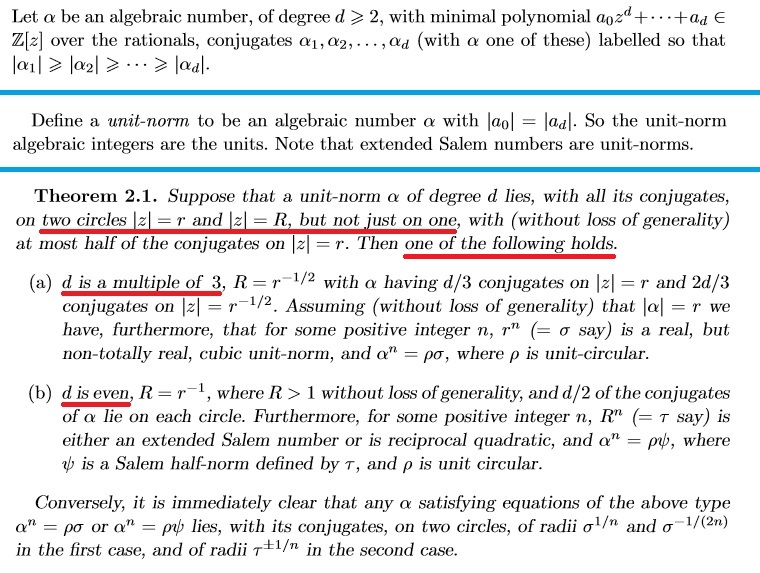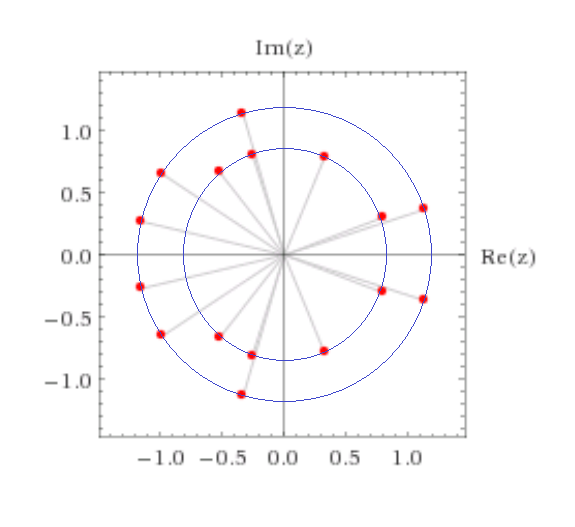This is somewhat similar to this recent question, but extending in a different direction.
Let $f(x)$ be an irreducible polynomial of degree $n$ with integer coefficients. Call such $f$ a bicycle polynomial if all its roots are located on two circles around $O$, i.e. all roots have one of two moduli. (Of course we'll exclude polynomials of cyclotomic type like $\Phi_n(mx)$ for $m\in\mathbb Z$, which have all their roots fit on one circle.)
For $n=2k$ or $n=3k$, examples of bicycle polynomials are $f(x)=g(x^k-1)$, where $g$ is irreducible of degree $2$ or $3$. Taking here a $g$ of degree $4$ with two pairs of complex roots yields still other bicycle polynomials for $n=4k$.
Now: except replacing the "$-1$" by any other nonzero integer, those types of constructions already seem to be about all of it...
- Do bicycle polynomials of degree $n$ exist if $n$ has only prime factors $>3$?
Assuming the existence of such a polynomial, it appears (?) to boil down to the existence of a degree $m$ polynomial ($m>3$ odd) with $m-1$ roots on one circle. This circle must presumably have an irrational radius because of what is known about Salem polynomials, but I'm stuck here.
Also related: How to best distribute points on two concentric circles?
Another question:
- Does anything change if we allow complex integers as coefficients?


